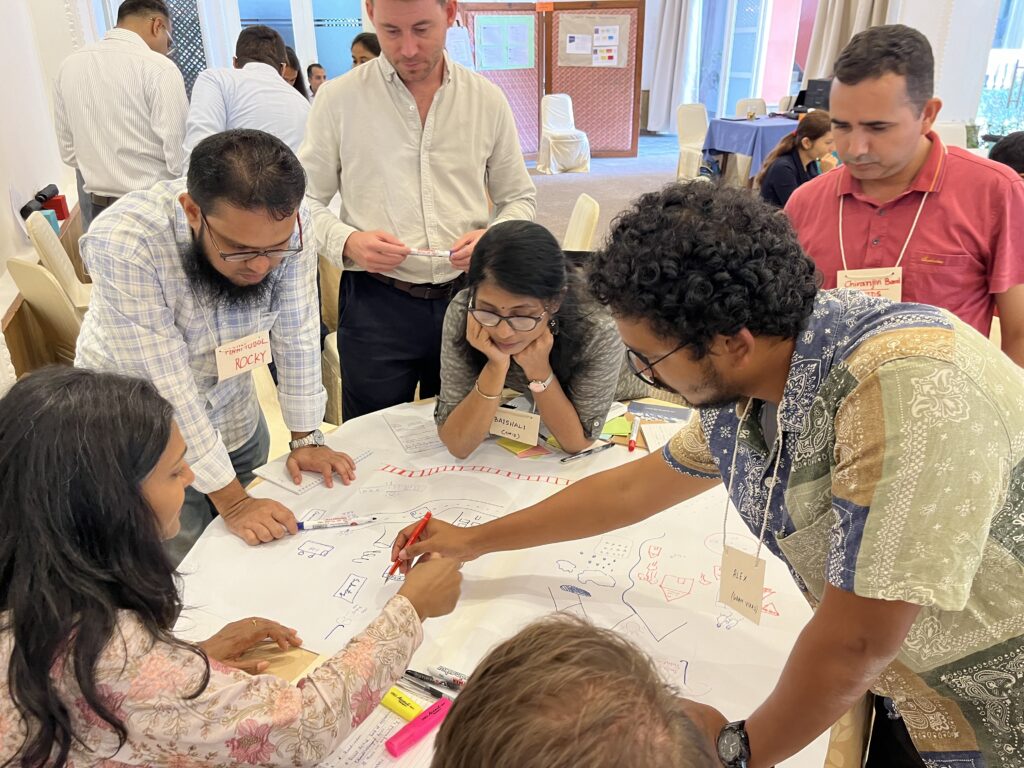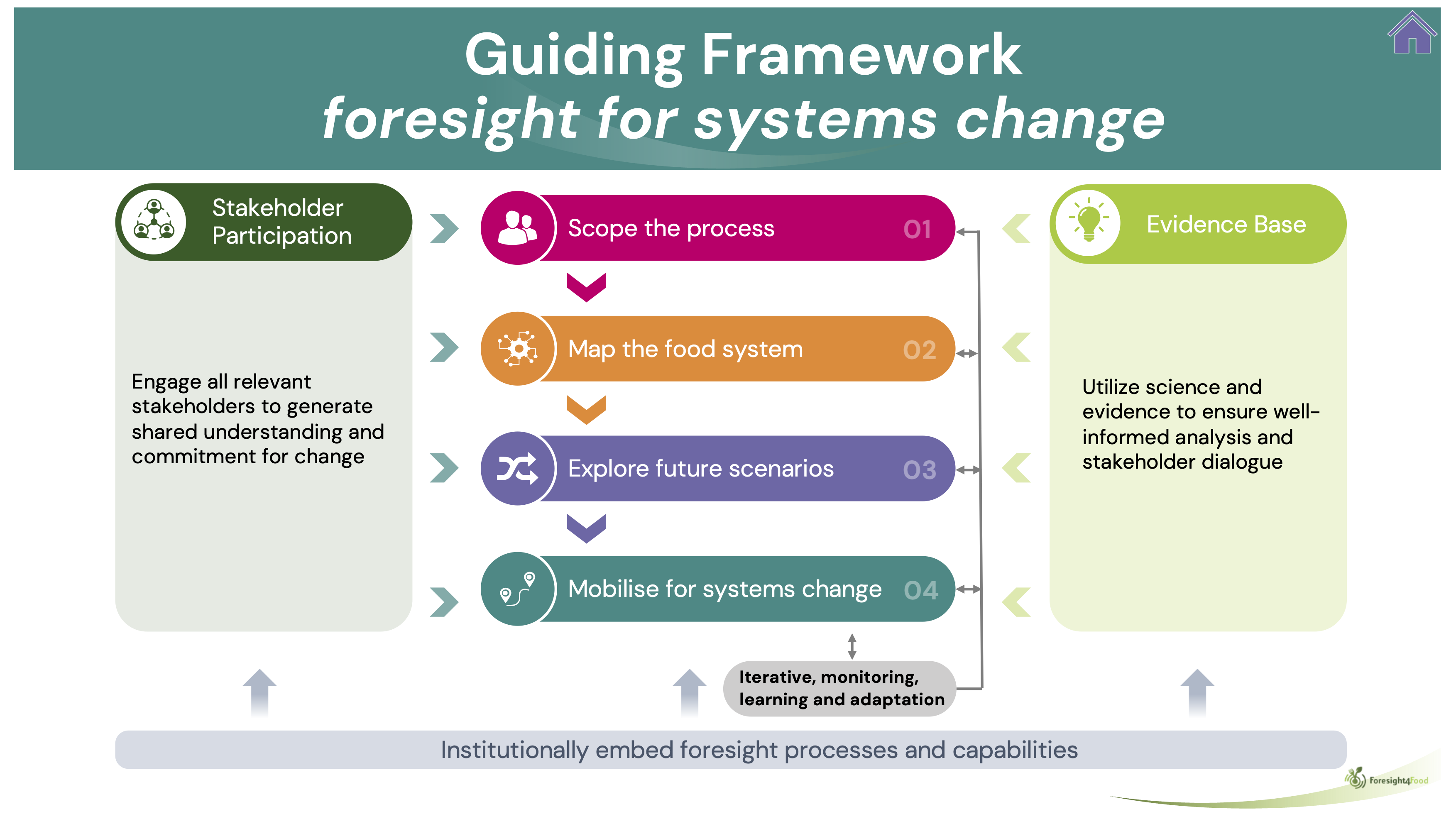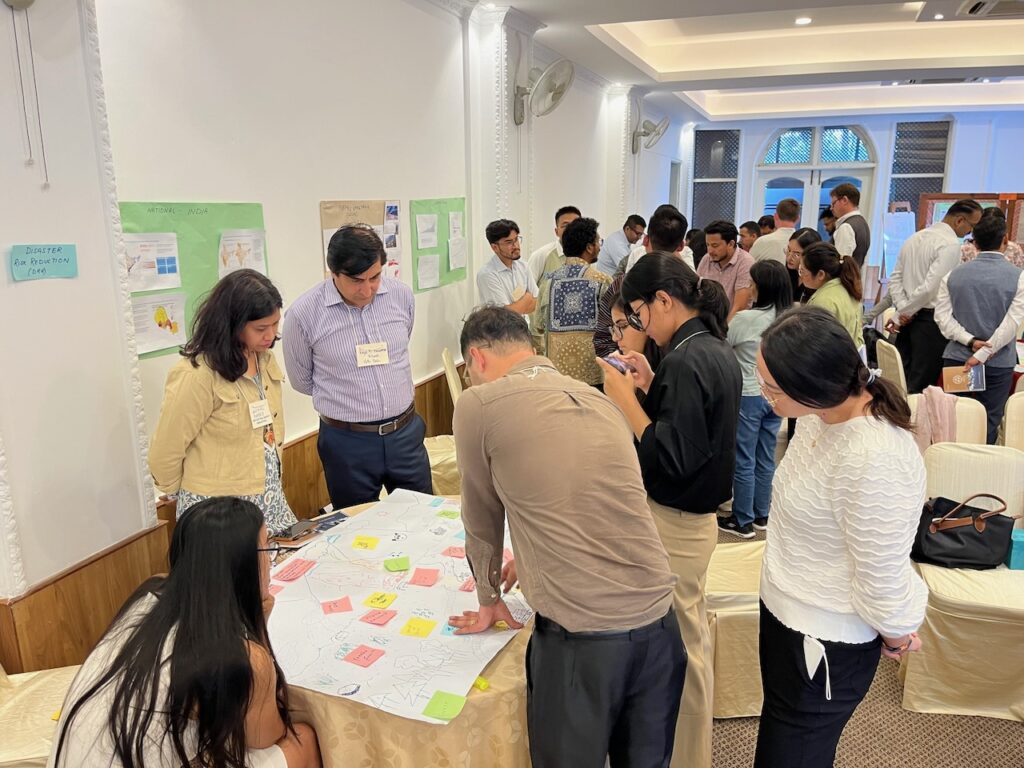Kathmandu, August 2024 – The International Centre for Integrated Mountain Development (ICIMOD) invited Foresight4Food to collaborate in facilitating a training workshop, using Foresight4Food’s Guiding Framework of foresight for systems change.
Facilitated by Jim Woodhill, Lead Foresight4Food Initiative, the workshop brought together a group of 35 development practitioners from across the Hindu Kush Himalaya region, including participants from Nepal, Bangladesh, Bhutan, India, and Pakistan. The training workshop focused on how to use foresight to help tackle the big regional issues of climate adaptation, creating diversified and resilient livelihoods in mountain areas, migration, and disaster preparedness.
Jim Woodhill shares his observations and insights on the workshop in this blog:

During the week, the participants worked through the four main phases of the Foresight4Food Framework – scoping the process, mapping the system, exploring future scenarios, and mobilising for systems change.

For each phase, participants were introduced to background concepts and theory, and relevant participatory foresight and systems thinking tools. Rich pictures, drawn by participants to illustrate the whole system, is always a favourite. Other tools we worked with included horizon scanning of future trends and uncertainties (guided by the PEESTLE acronym), data exploration, causal loop diagrams, scenario development, visioning, backcasting and conceptual modelling of systems.
Participants applied their learning directly to the issues of climate adaptation, pastoralism, migration, and disaster preparedness. Moreover, challenging discussions emerged about how to ensure “out of the box” thinking which meant looking for weak signals that might indicate a coming disruption, challenging assumptions about the future, bringing different perspectives to the table, using creative techniques to imagine radically different futures, and using the insights of “futurists”.
The workshop participants also engaged in a comprehensive horizon scanning process exploring mega-trends, trends, weak signals, critical uncertainties and wildcards helping to ensure foresight rather than “shortsight”.

At the end of the week, participants explored how to use foresight and systems thinking and practice in their own working context and discussed the institutional barriers against foresight and systemic practices. Additionally, it was concluded that ICIMOD can play a vital role in advocating for effective, participatory and transformative stakeholder engagement processes.